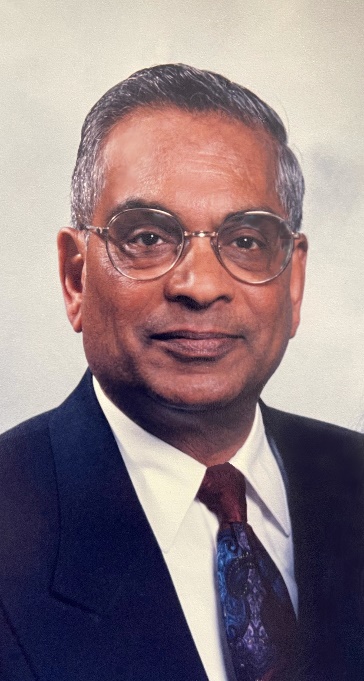Dr. Madan Gupta Obituary

|
Dr. Madan M. Gupta passed away on November 8, 2021 in Saskatoon, Saskatchewan, Canada from gastrointestinal tract complications. At the University of Saskatchewan, he was a distinguished research chair, engineering professor, and founder and director of the Intelligent Systems Research Laboratory. In 2021, Stanford University recognized Dr. Gupta as being among the top 1% of researchers in the world based on his publications.
Dr. Gupta authored or coauthored over 1000 reviewed and published research papers. He coauthored the seminal book Static and Dynamic Neural Networks: From Fundamentals to Advanced Theory. Dr. Gupta previously coauthored Introduction to Fuzzy Arithmetic: Theory and Applications (the first book on fuzzy mathematics) and Fuzzy Mathematical Models in Engineering and Management Science. Both of these books have Japanese translations. Also, Dr. Gupta edited or coedited approximately 20 other research books as well as many conference proceeding books and journal special issues in the fields of his research interests such as adaptive control systems, fuzzy computing, neuro-computing, neuro-vision systems, and neuro-control systems.
Dr. Gupta was elected fellow of the Institute of Electrical and Electronics Engineers (IEEE) for his contributions to the theory of fuzzy sets and adaptive control systems and for the advancement of the diagnosis of cardiovascular disease. He was elected fellow of the International Society for Optical Engineering (SPIE) for his contributions to the field of neuro-control and neuro-fuzzy systems. He was also elected fellow of the International Fuzzy Systems Association (IFSA) for his contributions to fuzzy-neural computing systems.
In 1998, Dr. Gupta was awarded the second Kaufmann Prize Gold Medal for his research in the field of fuzzy logic. This was presented in Reus, Spain by the Fundació per a l'Estudi de la Gestió en la Incertesa (FEGI), which is also known as the Foundation for the Study of Fuzzy Management, and the Sociedad Internacional de Gestión y Economia Fuzzy (SIGEF), which is also known as the International Association for Fuzzy Set Management and Economy. In 1991, Dr. Gupta was the co-recipient of the Institution of Electrical Engineers Kelvin Premium. He was elected as a visiting professor and a special advisor in the area of high technology to the European Centre for Peace and Development (ECPD), University for Peace, which was established by the United Nations. In 1991, he was invited by the ECPD to visit and lecture at about five industrial and research centers in India.
Dr. Gupta was on the editorial boards of over 15 journals in the field of fuzzy-neural and intelligent systems. Also, he participated in the initiation of some of these journals. He served as a founding member of some international societies such as the International Fuzzy Systems Association (IFSA), North American Fuzzy Information Processing Society (NAFIPS), and Canadian Fuzzy Information and Neural Society (CAN-FINS).
Dr. Gupta's recent research interests were in the areas of nonlinear control, neuro-vision systems, neuro-control systems, integration of fuzzy-neural systems, neuronal morphology of biological vision systems, intelligent and cognitive robotic systems, cognitive information, new paradigms in information processing, chaos in neural systems, and fuzzy-neural logic in law. He was also developing some new architectures of computational neural networks and computational fuzzy neural networks for application to advanced robotics, aerospace, medical, industrial, and business systems and law. His interest also lay in signal and image processing with applications to medical systems.
Dr. Gupta was born in Lansdowne, India on April 10, 1936. He received his B.E. (Hons.) and M.E. degrees in electronics-communications engineering from the Birla Engineering College (now the Birla Institute of Technology and Science), Pilani, India in 1961 and 1962, respectively. He was awarded the university's gold medal for being the top graduate. He got married on February 10, 1964. Shortly thereafter, he was awarded a prestigious Commonwealth Scholarship to continue his education in the United Kingdom. As a commonwealth scholar, he received his Ph.D. degree with a specialization in adaptive control systems from the University of Warwick in 1967. Then Dr. Gupta was recruited to be an engineering professor at the University of Saskatchewan in Saskatoon, Saskatchewan, Canada starting in November 1967. Over the next 54 years, Dr. Gupta was a prolific researcher at the University of Saskatchewan. In the fall of 1998, for his extensive contributions in neuro-control, neuro-vision, and fuzzy-neural systems, Dr. Gupta was awarded an earned doctor of science (D.Sc.) degree by the University of Saskatchewan. In 2010, he was one of only four professors at the University of Saskatchewan who were honored with newly created appointments as distinguished research chairs (now distinguished professors) for "those whose research has contributed significantly to the enhancement of knowledge, whose scholarly activity and accomplishments have enriched selected areas of research, who are recognized nationally and internationally for their impact and leadership, and who set a high standard of research excellence and have demonstrated an outstanding and sustained distinction in research."
In addition to an accomplished career, Dr. Gupta was a founding member of the Hindu Society of Saskatchewan. While serving as the president of the society from 1983 to 1985, he worked with the Saskatoon community to have the Shri Lakshmi Narayan Temple built. Dr. Gupta was an avid nonfiction reader, puzzle solver, and gardener. He grew a variety of vegetables and fruits every summer and shared them with his friends. He enjoyed traveling with his family to visit more family in India and explore other destinations around the world.





